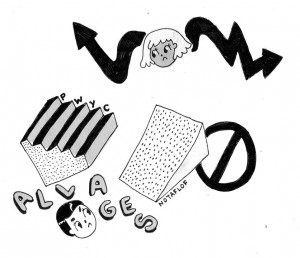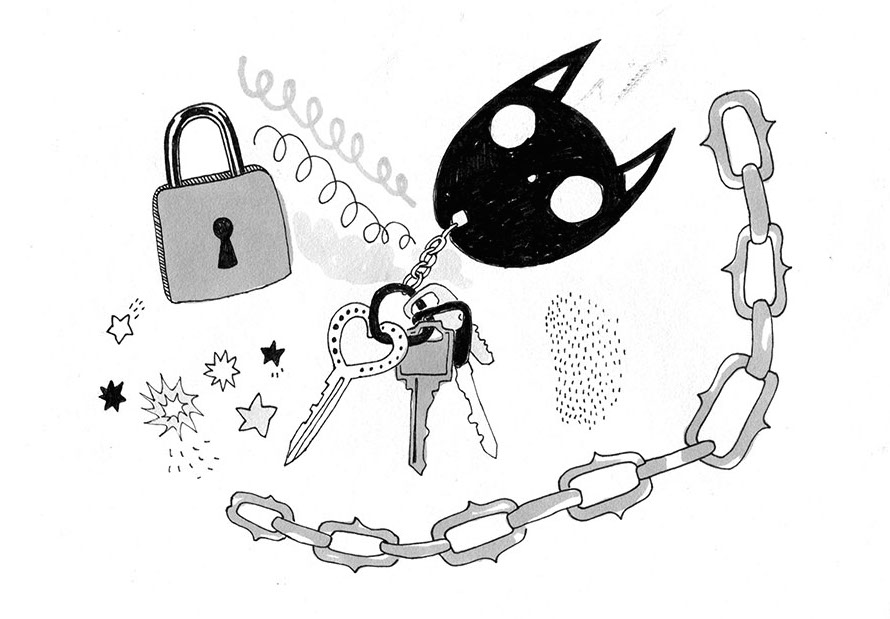If someone were to ask what you think about the accessibility of Vancouver’s local music scene, what would you say? Is it something that you have thought about? Talked about with your friends and fellow show-goers? If you have been talking about it, whose perspectives have you considered? Show attendees? Venue Staff? Performers?
If you are already having these conversations, chances are you’ve realized that there is definitely more that the local music community can be doing. The intention is not to shame some organizers. It’s worth acknowledging that there are individuals and collectives doing important research and making substantial investments to improve the accessibility of their events. However, it is also important to consider what is not happening, and start thinking of ways to change it.
When talking about accessibility, often the concept that comes up first is physical accessibility, with a focus on wheelchairs and other mobility devices. There are organizers in Vancouver who post physical accessibility information on their social media event pages — info about ramps, width of doors, washrooms, etc. This is undoubtedly an important development in local event planning, but there are many ways an event can be inaccessible that aren’t tied to physical mobility. For example, it’s worth considering how people with vision or hearing impairments experience a show or navigate a venue, or what makes an event safe for people with developmental disabilities or mental illnesses. When thinking about the needs of trans and non-binary show-goers, gendered bathrooms are an accessibility focus. There are many other examples, but the point is that different things are required to make events accessible for people, and those requirements may not always be outwardly visible or even discussed openly. An important step towards improving the inclusivity of shows is broadening our collective understanding of what “accessible” means.
This being said, who is responsible for ensuring the accessibility of local events? Is it the City of Vancouver? Venue managers? Organizers? This is a big question. It warrants looking outside of the local music scene Discorder has historically focused on, to organizations working towards a more accessible arts and culture community in Vancouver. One organization is Kickstart Disability Arts and Culture, a local non-profit that supports and promotes artists who identify as living with disabilities. Together with Realwheels Theatre Society, a theatre company that works towards deepening understanding of the disability experience, Kickstart recently published a report on the accessibility of theatre venues in Vancouver. The report is structured around an accessibility assessment of the Firehall Theatre, addressing accessibility issues for artists / performers, technicians, and patrons with disabilities. The report was funded by the City of Vancouver and Canada Council for the Arts, and created over one year of research and planning with a multi-disability audit team.

“The bottom line with making codes and making spaces, is to have people with disabilities guide those projects,” says Yuri Arajs, director of Kickstart. Speaking to the process of creating the report, Yuri continues, “That’s why we hired the crew that we did to go through the [Firehall Theatre] and experience it themselves, people with sight, hearing, physical disabilities — the whole gamut. That info has to come from those people, so we know what that experience is firsthand.”
Yuri acknowledges the importance of the public funding they received, as well as the investments of both Kickstart and Realwheels. However, he also acknowledges that the information contained in the report, with respect to data from the accessibility audit, is only part of the picture.
“Probably the most important thing everybody who has been involved in this project has learned about accessibility in public spaces, is that common sense and education is the most important thing out of anything,” he says. “Treating people equally, goes a long way … If people are trained [about accessibility] and then trained to follow through with that training — how to work with people, and to identify certain things about people with physical or emotional disabilities — it does so much.”
Adam Grant Warren is a local actor, director, playwright and teacher, with a show opening in May titled Last Train In, the result of a project commissioned and supported by Kickstart. Having moved to Vancouver almost ten years ago, he is well versed in the ways the local arts community can be inaccessible, but believes that important conversations are happening now.
“The more time I spend in Vancouver, the larger my circle of colleagues and collaborators who have disabilities gets,” he says. “And the larger it gets, the more I realize that there has to be a level playing field … I think that Realwheels and Kickstart have both been instrumental in putting up a hand and saying ‘Hey, hello, we need to have this discussion,’ and so this discussion is happening, and spaces have been taking that into account.”
While talking about the difficulties of putting these ideas into practice, Adam also notes that the work of ensuring accessibility needs to be shared, and prioritized. “[These conversations] can’t just be theoretical discussions about steps we could take by 2020. These things are happening now so the discussion has to happen now about what is available now. It comes down to the support of the city, the support of the municipalities, and it comes down to the support of event organizers.”
Speaking as someone who has organized shows in Vancouver, I agree with this — and I don’t take it lightly. At the events that I have helped organize and promote, accessibility has not been a priority. In some instances, it hasn’t even been part of the conversation, but I will be changing that.
Beyond the organizers, it’s also worth asking ourselves what our own responsibilities are as show attendees. We have the power to pressure for changes. How can we make the events we attend more accessible for our communities? It’s a big question with infinite answers, but that does not mean we shouldn’t talk about it.
x
You can find out more about Kickstart Disability Arts and Culture, their Accessibility Report and their upcoming events at kickstartdisability.ca. Adam Warren’s play, Last Train In, runs from May 30 to June 4 at the rEvolver festival. More information at upintheairtheatre.com/last-train-in.
*Editor’s Note: This article will be a two-part series, the first half released to coincide with Global Accessibility Awareness Day on May 18. CiTR 101.9FM is hosting its own GAAD event — Access Day — which promises to address many of the issues brought up in this series and more. Tune your FM dial, or listen online at citr.ca.


